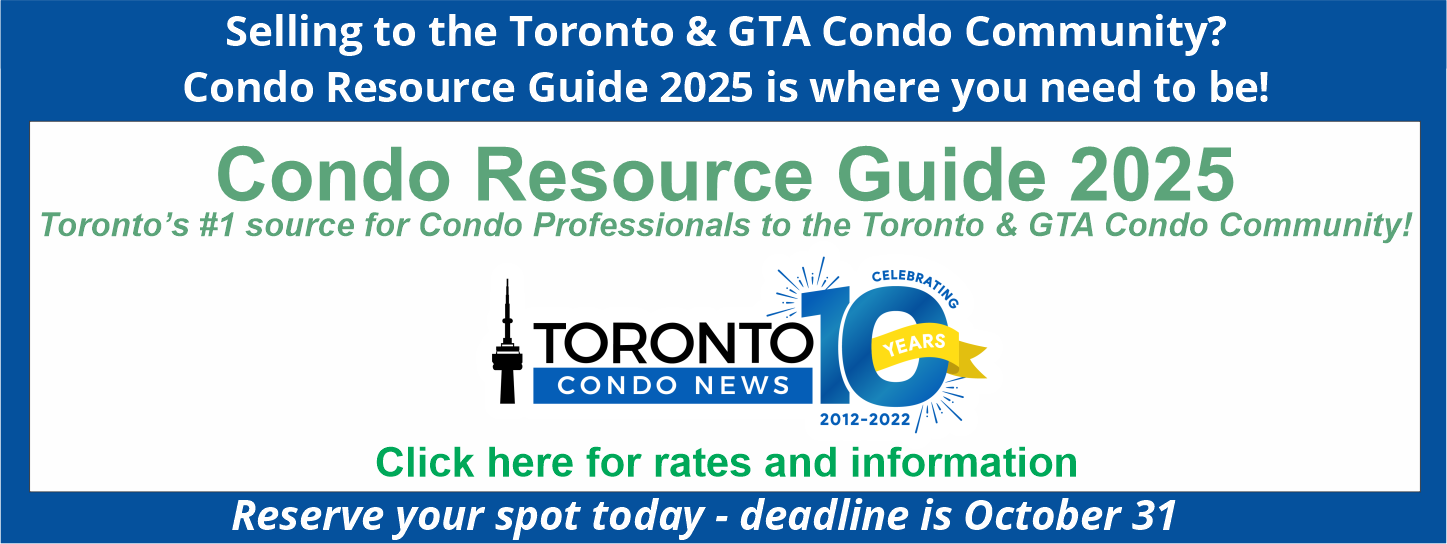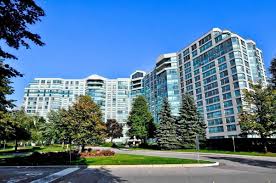 June 2021
June 2021
It can be difficult navigating the confusing array of requirements and restrictions during COVID. Condo boards and management seeking to protect residents without infringing on the rights of home owners and tenants have no experience in this area.
Toronto Condo News spoke with condominium managers to obtain practical insights about how they have navigated the challenges and developed these common sense management practices.
Enhanced Communication
More people at home during the day combined with the volume and pace of change requires more frequent resident-management communication. With limited physical access and a single telephone line unable to accommodate call volume, other communication methods are needed. The following systems are used in communities to offer enhanced communication:
- Residents are encouraged to submit service requests through condo management software.
- Artificial intelligence technology allows residents to submit questions or service requests to management via text. Most questions receive an automated response which reduces the volume of resident inquiries a manager receives while providing quick and accurate answers. Service requests are immediately processed for faster resolution. All communications are integrated with existing condo management software.
- A url is provided for residents wanting to schedule a meeting. Options include telephone and Zoom. Residents can schedule a call or meeting on the online calendar.
- A telephone number is provided for those desiring a Zoom meeting (video only) with telephone audio.
- All contact options are provided in the e-mail signature.
Resident Access / Use of Hallways and Stairwells
 There are no firm restrictions on residents navigating hallways and stairwells.
There are no firm restrictions on residents navigating hallways and stairwells.
Boards and management may ask residents to adhere to physical distancing and mask regulations instituted by city, regional or provincial government. Where residents fail to abide by these regulations, management can request intervention by a regional authority.
Residents may choose to walk hallways for exercise. Where hallways become congested or residents congregate in areas, they may be asked to refrain from such activities.
Renovations and Repairs
Coordinating in-suite renovations is undertaken by management to address concerns about noise, elevator access and overall building activity. During COVID some have chosen to delay approval and scheduling of what they deem non-essential renovations. Renovations may not be discretionary if they prevent someone from moving in.
Visitor Access to Building
Residents have a right to invite visitors including contractors to their suite. Boards have the right to monitor building activity which may include recording who is visiting resident suites.
Building Maintenance
Most building maintenance should be maintained. With more people at home, building systems and spaces require more care to retain their longevity, appearance and value.
Access to Elevators
 Elevators cabs have capacity limits determined by cab size, air flow and weight. The number of elevators in a building is based on building population. Arbitrary capacity restrictions, including those in response to COVID, are likely to create unintended problems. When arbitrary capacity restrictions are attempted, an elevator bottleneck is likely to occur making distancing practically impossible. Efforts to create and enforce reduced cab capacity limits can worsen the queue waiting for an elevator and restricting access by those unwilling or unable to navigate stairs.
Elevators cabs have capacity limits determined by cab size, air flow and weight. The number of elevators in a building is based on building population. Arbitrary capacity restrictions, including those in response to COVID, are likely to create unintended problems. When arbitrary capacity restrictions are attempted, an elevator bottleneck is likely to occur making distancing practically impossible. Efforts to create and enforce reduced cab capacity limits can worsen the queue waiting for an elevator and restricting access by those unwilling or unable to navigate stairs.
Closure of and Access to Amenities
 Closure of multi-family housing common areas, social activities and programming have been a common theme throughout the pandemic; without consideration of impact which may be worse than the virus.
Closure of multi-family housing common areas, social activities and programming have been a common theme throughout the pandemic; without consideration of impact which may be worse than the virus.
Closure of amenities should only be based on government regulation. Once local regulations permit, communities should re-open amenities when possible to do so in accordance with whatever government restrictions are mandated.
Accessible amenities can include cleaning wipes or supplies for wiping down areas before and after use.
Personal Measures
Residents can be encouraged to follow basic sanitary efforts:
- Regularly wash hands and utilize hand sanitizer
- Wipe down public seating, tables and exercise equipment before and after use
- Properly dispose of waste
- Avoid spitting on the ground on sidewalks, in parking garages and hallways
Building-wide Cleaning and Sanitation
More frequent cleaning of touch points; points of contact in common areas most frequently handled or touched. In the most public areas this includes door handles, elevator buttons, light switches, door opening buttons and push plates, buzzer systems, and hand rails. Other spaces include washroom toilets, faucets and sinks, and exercise equipment.
In the mailroom, mailboxes should be cleaned and disinfected along with touch points. Paper, including flyers and magazines, when allowed in these areas facilitate transmission of infectious viruses.
Trash doors, chutes and dumpsters require regular disinfecting.
Pet waste should never be allowed on indoor or outdoor common areas. Where pet waste is a problem consider regular area cleanups, provision of waste bags and receptacles, and pet dna services.
Specific spaces warrant daily or more frequent cleaning and sanitizing:
- Door handles, elevator buttons, light switches, door opening buttons and push plates, buzzer systems, and hand rails
- Washroom toilets, faucets and sinks
- Exercise equipment
- Office, concierge and common area workstations, desks, phones, keyboards and computer mice
- Smartphones and other communication devices








